 This here review raised a lot of questions in the steely House of Druhm. Sorcerer was a band I had firmly on my radar back in the 90s due to a few high quality demos featuring an interesting take on traditional metal buoyed by impressive vocals. Sadly, the best the band could manage before blinking out was a 1995 compilation of demo cuts, which despite their raw quality, was a compelling listen I still spin to this day. When I saw the name Sorcerer appear in our fetid promo bin, I assumed it would be some lo-fi black metal jiggery-pokery, but to my surprise it’s the band I knew back in the days of hair, cheap beer and free time! And to my eternal bewilderment and shame, I find I somehow completely missed their 2015 comeback album. It ain’t easy being the official Leave the Hall Monitor sometimes. Mistakes being made and owned up to, the fact the band is back and still featuring the mega pipes of Anders Engberg (ex-Lion’s Share, ex-Twilight), now supported by a who’s who of Swedish musicians from Therion and Tiamat is a truly grand surprise. Making it better still, they’ve become a top-shelf epic doom unit, fusing Candlemass with the regal neoclassical polish of Kamelot and heaping helpings of Tony Martin era Black Sabbath. Big riffs, bigger vocals, melodic sensibilities set to stun – it’s all here waiting on the I-ruhn Throne ov Swedish Doom Metal (currently occupied by the Sauron-ish Fire King).
This here review raised a lot of questions in the steely House of Druhm. Sorcerer was a band I had firmly on my radar back in the 90s due to a few high quality demos featuring an interesting take on traditional metal buoyed by impressive vocals. Sadly, the best the band could manage before blinking out was a 1995 compilation of demo cuts, which despite their raw quality, was a compelling listen I still spin to this day. When I saw the name Sorcerer appear in our fetid promo bin, I assumed it would be some lo-fi black metal jiggery-pokery, but to my surprise it’s the band I knew back in the days of hair, cheap beer and free time! And to my eternal bewilderment and shame, I find I somehow completely missed their 2015 comeback album. It ain’t easy being the official Leave the Hall Monitor sometimes. Mistakes being made and owned up to, the fact the band is back and still featuring the mega pipes of Anders Engberg (ex-Lion’s Share, ex-Twilight), now supported by a who’s who of Swedish musicians from Therion and Tiamat is a truly grand surprise. Making it better still, they’ve become a top-shelf epic doom unit, fusing Candlemass with the regal neoclassical polish of Kamelot and heaping helpings of Tony Martin era Black Sabbath. Big riffs, bigger vocals, melodic sensibilities set to stun – it’s all here waiting on the I-ruhn Throne ov Swedish Doom Metal (currently occupied by the Sauron-ish Fire King).
Things start strong with “Sirens” which is a huge dose of epical doom walking the elegant line between Candlemass and Solitude Aeturnus. The riff-work grabs you and the bigger than Bejesus and exceptionally classy vocals of Anders Engberg lash you to the mast with a huge chorus. The wicked neoclassical soloing by Kristian Nieman (Therion) and Peter Hallgren are the icing on the cake, topping it off with elegance and technical wizardry. The nearly 10-minute “Ship of Doom” is an intriguing voyage to be sure, touching heavily on the playbook created by Candlemass founder Leif Edling while shrewdly incorporating elements of Siege Perilous and The Fourth Legacy era Kamelot along with vintage Mercyful Fate. The wonder of the song is how catchy and accessible it is and just how fast the 10-minutes pass by.
“Abandoned by the Gods” adds a tasty Middle Eastern flavor and a big dose of both Dream Evil and Headless Cross era Sabbath for a smoking hot slice of epic metal that’s far more addictive and hooky than it should be. Anders blows the doors off this one with a positively enormous performance, the fluid and first-rate guitar noodling is out of sight and the chorus is a big winner. “The Devil’s Incubus” is as good if not better and just as intensely catchy, and the title track is a thing is beauty, carefully stitching classic doom with Euro-power in a way I didn’t think possible. It has the strengths of both genres and neither of their weaknesses, and you have to hear it to understand. Even the oddball closer “Unbearable Sorrow” is a win despite an unusual step toward both melancholic post-metal and Dokken-esque hair metal, if you can imagine that (and you likely can’t).

Downsides? Not really. The slave master sound clips during “Ship of Doom” are a bit cheesy and take away from the otherwise world-class music, and occassionally the lyrics get a bit too LARP-friendly.
The production is polished and allows the band’s technical know-how to shine through. A darker, more menacing guitar tone would have added extra pop, but there’s little else to complain about. At almost an hour in length and full of songs between 6 and 10 minutes, this thing goes by fast! The songs are so well crafted and catchy, they seem more like radio hits than classic doom constructs. This is big, big stuff but very easy to enjoy.
Anders Engberg never sounded better and he simply owns this album from start to finish. He’s like a wondrous hybrid of Roy Khan, Tony Martin and Niklas Isfedt (Dream Evil) and brings a power and accessibility to the well constructed material. He really impressed the hell out of me here and I was already a fan of his singing. The music behind him is every bit as good and the guitar-work by Nieman and Hallgren is out of this world. They get the doom leads right and use them as a base upon which to pile classic and power metal influences and showcase some stellar solo-work. This is one of those albums where every note feels right and each adds something crucial to the song it appears within.
When I think of how far Sorcerer has come from those early demos to this ginormous crowning achievement, it boggles my metal mind. It took them 27 years to get here, but it was definitely worth the wait. A strong Album o’ the Year contender that doom, power and traditional metal fans should check out post-haste. Long live Sorcerer and the Fire King!
Rating: 4.5/5.0
DR: 7 | Format Reviewed: 273 kbps mp3
Label: Metal Blade
Websites: sorcererdoom.bandcamp.com | sorcererdoom.com | facebook.com/sorcererdoom
Releases Worldwide: October 20th, 2017
The post Sorcerer – The Crowning of the Fire King Review appeared first on Angry Metal Guy.

 I have a unique history with Salem, Massachusetts’ Converge. Having followed them since their Caring & Killing days, my friends and I would check them out as well other metalcore luminaries such as Overcast, Shadows Fall, Disembodied, and Zao. But whereas the other aforementioned bands would put on some chaotic live shows, Converge‘s sets were a different beast entirely. Picture violent gang-shouts by Jacob Bannon and the audience, guitarist Kurt Ballou bouncing off of people’s heads like a live-action Super Mario, and people diving off stages, off of people, and even off of balconies.
I have a unique history with Salem, Massachusetts’ Converge. Having followed them since their Caring & Killing days, my friends and I would check them out as well other metalcore luminaries such as Overcast, Shadows Fall, Disembodied, and Zao. But whereas the other aforementioned bands would put on some chaotic live shows, Converge‘s sets were a different beast entirely. Picture violent gang-shouts by Jacob Bannon and the audience, guitarist Kurt Ballou bouncing off of people’s heads like a live-action Super Mario, and people diving off stages, off of people, and even off of balconies.

 In comparison with previous albums, the production here is a shade cleaner. Though hardly sanitized, it does offer the quality of the mix a chance to stand out, cementing multi-instrumentalist, L.L’s consummate dedication to Desolate Shrine in his ability to deliver feral guitar lines and contrast them with inescapable crunch. The production particularly emphasizes his noteworthy drum work, proliferating a jarring dichotomy of insistent blastbeats amidst creative fills that accentuate the record’s more pensive moments, allowing those vilifying vocals to emanate up from the ether. Such is the quality of the writing, the record builds in pressure throughout its run-time – “The Silent Star” gathers up a collection of those lumbering rhythms and displays them boldly over suffocating atmospherics, anchoring the album’s second half with a grave gravitas amidst its more scathing siblings.
In comparison with previous albums, the production here is a shade cleaner. Though hardly sanitized, it does offer the quality of the mix a chance to stand out, cementing multi-instrumentalist, L.L’s consummate dedication to Desolate Shrine in his ability to deliver feral guitar lines and contrast them with inescapable crunch. The production particularly emphasizes his noteworthy drum work, proliferating a jarring dichotomy of insistent blastbeats amidst creative fills that accentuate the record’s more pensive moments, allowing those vilifying vocals to emanate up from the ether. Such is the quality of the writing, the record builds in pressure throughout its run-time – “The Silent Star” gathers up a collection of those lumbering rhythms and displays them boldly over suffocating atmospherics, anchoring the album’s second half with a grave gravitas amidst its more scathing siblings.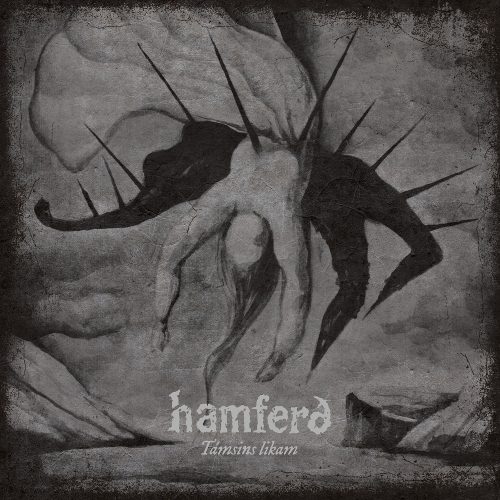 Hamferð first came to my attention following the publication of my review of the most recent Barren Earth record. The two bands share a vocalist—Jón Aldará—and his voice was the absolute highlight of
Hamferð first came to my attention following the publication of my review of the most recent Barren Earth record. The two bands share a vocalist—Jón Aldará—and his voice was the absolute highlight of 
 Hamferð plays some of its slowest material without the drums keeping time. Instead, Johannesen riffs languidly along on his toms, letting the rhythm go tacit (like on “Stygd”). This is difficult at any speed, but it may be harder at the speed of dirge. But the drums, like the whole band, work in unison with the whole band; the guitars and bass are arranged so perfectly that they function orchestrally. Ísak Petersen’s bass anchors Hamferð‘s fat, meaty riffs, and the guitarists—John Áki Egholm and the aforementioned Kapnas—drop subtle solos and demonstrate fantastic feel for their instruments. And, as the best vocalists do, Jón ties the album together. He demonstrates the ability to work with everything asked of him, and to shine. Whether he strikes a mournful tone, a beastly growl, angelic cleans, or a tortured cry, Aldará’s performance is striking and beautiful.
Hamferð plays some of its slowest material without the drums keeping time. Instead, Johannesen riffs languidly along on his toms, letting the rhythm go tacit (like on “Stygd”). This is difficult at any speed, but it may be harder at the speed of dirge. But the drums, like the whole band, work in unison with the whole band; the guitars and bass are arranged so perfectly that they function orchestrally. Ísak Petersen’s bass anchors Hamferð‘s fat, meaty riffs, and the guitarists—John Áki Egholm and the aforementioned Kapnas—drop subtle solos and demonstrate fantastic feel for their instruments. And, as the best vocalists do, Jón ties the album together. He demonstrates the ability to work with everything asked of him, and to shine. Whether he strikes a mournful tone, a beastly growl, angelic cleans, or a tortured cry, Aldará’s performance is striking and beautiful. Tribulation have been on an interesting career path as of late. While their early works could be loosely classified as Swedish death metal a la Entombed, the band gradually began to bring in other influences and become something else entirely. As of 2015’s
Tribulation have been on an interesting career path as of late. While their early works could be loosely classified as Swedish death metal a la Entombed, the band gradually began to bring in other influences and become something else entirely. As of 2015’s 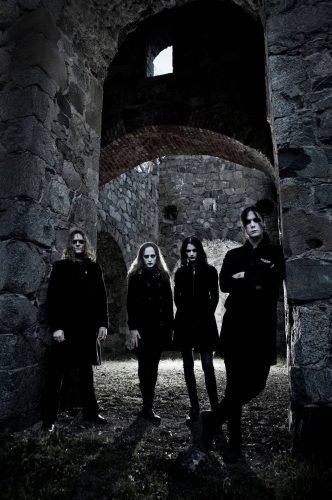
 Finland’s Thaurorod has finally produced its third studio album after a hiatus of nearly five years, and I finally have both one of my most-anticipated releases of 2018, and a album that isn’t excruciatingly hard to write about. For those not acquainted, this group has a curious legacy. Its 2010 debut, Upon Haunted Battlefields, was one of my favorites of the year, and remains overwhelmingly positive to this day. Despite its barely controlled chaos, overly ambitious songwriting, and occasional inconsistencies, it was a thundering mammoth of a debut that startled me into alacrity. By 2013, singer Andi Kravljaca had joined up with the act, replacing erstwhile vocalist Markku Kuikka (Kenziner, Status Minor), and the band’s lineup finally stabilized, resulting in the considerably more approachable Anteinferno. Nothing has now changed in lineup or general sound since 2012, and so hopes for Coast of Gold were running high.
Finland’s Thaurorod has finally produced its third studio album after a hiatus of nearly five years, and I finally have both one of my most-anticipated releases of 2018, and a album that isn’t excruciatingly hard to write about. For those not acquainted, this group has a curious legacy. Its 2010 debut, Upon Haunted Battlefields, was one of my favorites of the year, and remains overwhelmingly positive to this day. Despite its barely controlled chaos, overly ambitious songwriting, and occasional inconsistencies, it was a thundering mammoth of a debut that startled me into alacrity. By 2013, singer Andi Kravljaca had joined up with the act, replacing erstwhile vocalist Markku Kuikka (Kenziner, Status Minor), and the band’s lineup finally stabilized, resulting in the considerably more approachable Anteinferno. Nothing has now changed in lineup or general sound since 2012, and so hopes for Coast of Gold were running high.
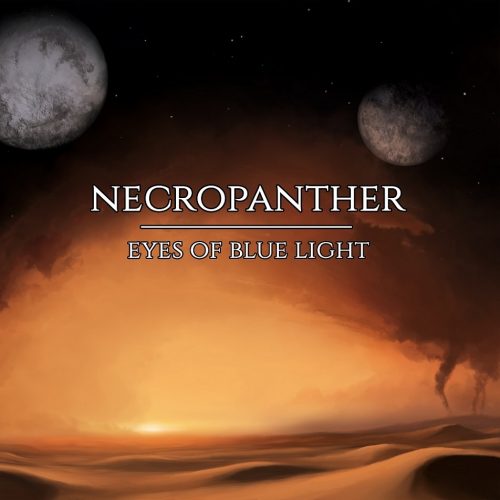 In my eighteen months writing for this blog I’ve somehow failed to even once express my affinity for Skeletonwitch. They are, without question, one of my very favorite metal bands; their ability to pair unconventionally hooky melodies with equally catchy thrash rhythms, bred with prominent elements of melodic death and black metal, gets my blood flowing in a way that traditional genre affair can never quite match. Describing Skeletonwitch’s sound in this review also serves to summarize the sound of Denver, Colorado’s Necropanther, whose approach is so similar to that of the ‘Witch as to be one riff away from an overnighted cease and desist letter. And yet, the more I listened to their sophomore record Eyes of Blue Light, conscious associations between Necropanther and their primary influence dissipated, because the way that this band embraces and perfects everything they attempt places them in a class all their own. Oh, and they absolutely fucking slay.
In my eighteen months writing for this blog I’ve somehow failed to even once express my affinity for Skeletonwitch. They are, without question, one of my very favorite metal bands; their ability to pair unconventionally hooky melodies with equally catchy thrash rhythms, bred with prominent elements of melodic death and black metal, gets my blood flowing in a way that traditional genre affair can never quite match. Describing Skeletonwitch’s sound in this review also serves to summarize the sound of Denver, Colorado’s Necropanther, whose approach is so similar to that of the ‘Witch as to be one riff away from an overnighted cease and desist letter. And yet, the more I listened to their sophomore record Eyes of Blue Light, conscious associations between Necropanther and their primary influence dissipated, because the way that this band embraces and perfects everything they attempt places them in a class all their own. Oh, and they absolutely fucking slay.
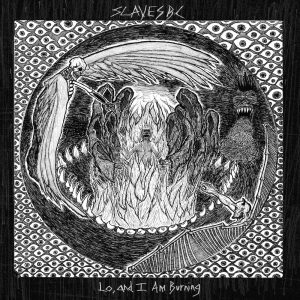 Remember Dodecahedron, oooh and how a certain timeless scribe-god lauded their
Remember Dodecahedron, oooh and how a certain timeless scribe-god lauded their 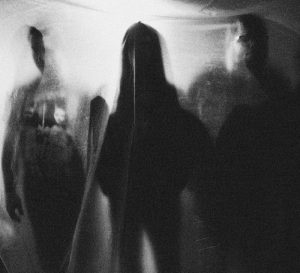 I know you impatient bastards are unable to wait for 750 words to see whatever number we Angry Metal Wordslingers attribute to our prose, which means you know that Lo is not an immaculate conception… just real damn close. Heartfelt and heart-stopping though it is, the album occasionally stumbles on its own hectic footing, sometimes lurking in the shadows of a particular riff or chord for just a touch too long to feel fair. Thankfully, this slight blemish mars things only once or twice, namely in “Lo” and by proxy within its continuation into “We are All God’s Fault.” Where 99.666% of the album is some of the most sincere and engaging metal I’ve heard to date, the flaw is minor, but it exists nonetheless. Also, there’s no cowbell to speak of, so frankly my hands are tied here.
I know you impatient bastards are unable to wait for 750 words to see whatever number we Angry Metal Wordslingers attribute to our prose, which means you know that Lo is not an immaculate conception… just real damn close. Heartfelt and heart-stopping though it is, the album occasionally stumbles on its own hectic footing, sometimes lurking in the shadows of a particular riff or chord for just a touch too long to feel fair. Thankfully, this slight blemish mars things only once or twice, namely in “Lo” and by proxy within its continuation into “We are All God’s Fault.” Where 99.666% of the album is some of the most sincere and engaging metal I’ve heard to date, the flaw is minor, but it exists nonetheless. Also, there’s no cowbell to speak of, so frankly my hands are tied here.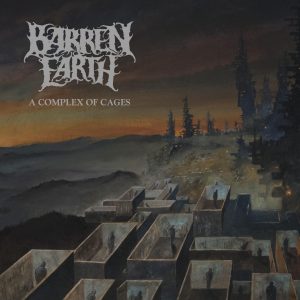 Finland’s Barren Earth started as the bastard child of Amorphis and Swallow the Sun. Their first record,
Finland’s Barren Earth started as the bastard child of Amorphis and Swallow the Sun. Their first record, 
 , but I’ve listened to the album through a variety of speakers and while one can knit pick, I didn’t find it as fatiguing as its predecessor. And I need to give a shout out to V. Santura’s production, which managed to maintain surprisingly good drum sound for its DR6 master. The biggest knock against A Complex of Cages is that it’s a bit too long. The track that I could most do without is “Solitude Path,” which clocks in at 10+ minutes and reeks of bong water and patchouli. While none of the component parts are bad—in fact, I love the way the song recapitulates the intro at the end, but in a heavier form—it takes 5 minutes to get going and it breaks my immersion. My Angry Metal Attention Deficit Disorder (AMADD) may be the problem, it breaks immersion and is the place where I’m most likely to stop the record.
, but I’ve listened to the album through a variety of speakers and while one can knit pick, I didn’t find it as fatiguing as its predecessor. And I need to give a shout out to V. Santura’s production, which managed to maintain surprisingly good drum sound for its DR6 master. The biggest knock against A Complex of Cages is that it’s a bit too long. The track that I could most do without is “Solitude Path,” which clocks in at 10+ minutes and reeks of bong water and patchouli. While none of the component parts are bad—in fact, I love the way the song recapitulates the intro at the end, but in a heavier form—it takes 5 minutes to get going and it breaks my immersion. My Angry Metal Attention Deficit Disorder (AMADD) may be the problem, it breaks immersion and is the place where I’m most likely to stop the record. UK emokrust collective Morrow dropped a massive debut on my lap in 2016 in the form of
UK emokrust collective Morrow dropped a massive debut on my lap in 2016 in the form of 
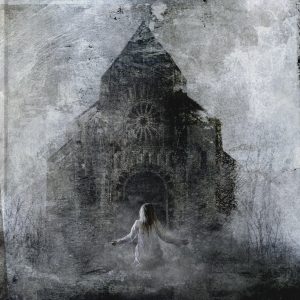 In 2004, a close friend of mine lost not one but both of his parents in the Indian Ocean tsunami that claimed nearly a quarter of a million lives. While I hope I will never experience tragedy as dramatic and profound as his, the impact reverberated throughout our small group, and to a comparatively infinitesimal degree, we shared in his loss. Without wanting to cheapen such sorrow, doom metal — particularly in its more extreme iterations — has always offered me a similar catalytic capacity to know its author’s pain. Canada’s Altars of Grief dabble in a blackened funeral doom, and their second album, Iris, is yet to fail to devastate me in a way that only the truly heartbroken know. Crushing, beautiful and unequivocally exceptional.
In 2004, a close friend of mine lost not one but both of his parents in the Indian Ocean tsunami that claimed nearly a quarter of a million lives. While I hope I will never experience tragedy as dramatic and profound as his, the impact reverberated throughout our small group, and to a comparatively infinitesimal degree, we shared in his loss. Without wanting to cheapen such sorrow, doom metal — particularly in its more extreme iterations — has always offered me a similar catalytic capacity to know its author’s pain. Canada’s Altars of Grief dabble in a blackened funeral doom, and their second album, Iris, is yet to fail to devastate me in a way that only the truly heartbroken know. Crushing, beautiful and unequivocally exceptional.
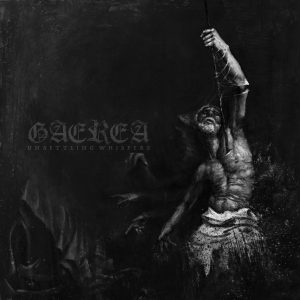 A black metal Transcending Obscurity release with monochrome artwork: who could have ever foreseen this one falling into my velvety grasp? Portugal’s Gaerea certainly put their
A black metal Transcending Obscurity release with monochrome artwork: who could have ever foreseen this one falling into my velvety grasp? Portugal’s Gaerea certainly put their 
 New York City is a strange dichotomy. Depending on who you ask, you’ll either get mental pictures of Broadway musicals, jazz concerts, the colorfully decorative Times Square, and shopping centers and skyscrapers within a stone’s throw of each other… or you’ll get a grim story of the rampant drug use and homelessness, its long history of violent crimes, and the hopelessness and gritty realities of its citizens that birthed the city’s rap, hardcore, and metal scenes. The thing is, either story would be correct. On their third full-length, Vile Luxury, Imperial Triumphant paints a vivid picture of their city’s duality: shimmering and powerful, yet simultaneously ugly and brutal. In doing so, they also crafted an album that’s the American equivalent to Voices‘ ode to their own home, 2014’s
New York City is a strange dichotomy. Depending on who you ask, you’ll either get mental pictures of Broadway musicals, jazz concerts, the colorfully decorative Times Square, and shopping centers and skyscrapers within a stone’s throw of each other… or you’ll get a grim story of the rampant drug use and homelessness, its long history of violent crimes, and the hopelessness and gritty realities of its citizens that birthed the city’s rap, hardcore, and metal scenes. The thing is, either story would be correct. On their third full-length, Vile Luxury, Imperial Triumphant paints a vivid picture of their city’s duality: shimmering and powerful, yet simultaneously ugly and brutal. In doing so, they also crafted an album that’s the American equivalent to Voices‘ ode to their own home, 2014’s 
 If the conversations I’ve seen on the interwebs are any indication, 2018 hasn’t been the greatest year for metal. In that regard, Allfather’s new album should come with an apology. Sorry for breaking your fucking necks, the sticker would read. But we had to remind you what good metal is all about. This British quintet already ravaged my eardrums with their 2016 debut
If the conversations I’ve seen on the interwebs are any indication, 2018 hasn’t been the greatest year for metal. In that regard, Allfather’s new album should come with an apology. Sorry for breaking your fucking necks, the sticker would read. But we had to remind you what good metal is all about. This British quintet already ravaged my eardrums with their 2016 debut 
 I,
I, 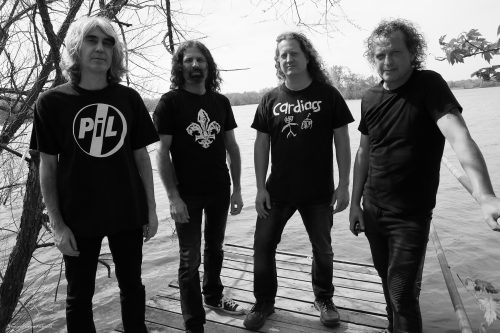
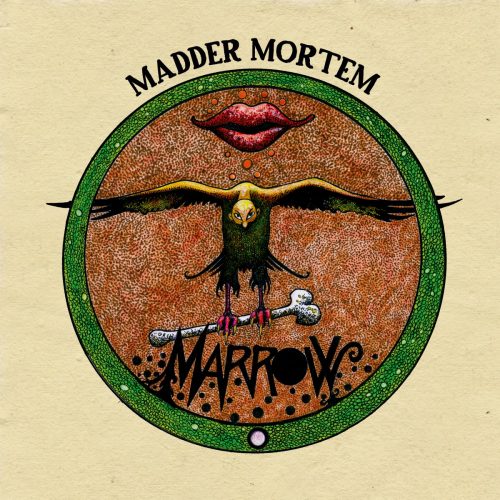 Rare is the band that truly sounds like no one else. Either standing on the shoulders of giants, or innovating their way to hundreds of copycats, few have no comparable peers, followers, or ancestors. Madder Mortem, also known as Norway’s best-kept secret, are one of those bands. With their idiosyncratic sound, an avant-garde mixture of alternative, gothic and progressive metal, and frontwoman Agnete Kirkevaag’s signature blend of ragged screams and sultry smooth croon, the band is nearing 20 years of existence, yet never gained a large audience. 2016’s excellent Red in Tooth and Claw finally started making some waves for the quintet, upon which they now hope to capitalize with Marrow, an album constructed around the central theme of inner strength.
Rare is the band that truly sounds like no one else. Either standing on the shoulders of giants, or innovating their way to hundreds of copycats, few have no comparable peers, followers, or ancestors. Madder Mortem, also known as Norway’s best-kept secret, are one of those bands. With their idiosyncratic sound, an avant-garde mixture of alternative, gothic and progressive metal, and frontwoman Agnete Kirkevaag’s signature blend of ragged screams and sultry smooth croon, the band is nearing 20 years of existence, yet never gained a large audience. 2016’s excellent Red in Tooth and Claw finally started making some waves for the quintet, upon which they now hope to capitalize with Marrow, an album constructed around the central theme of inner strength.
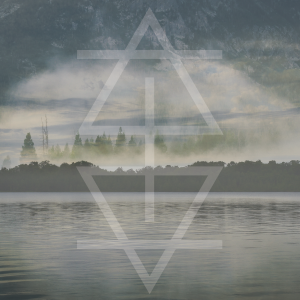
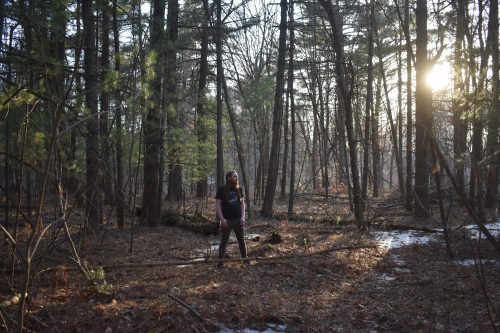

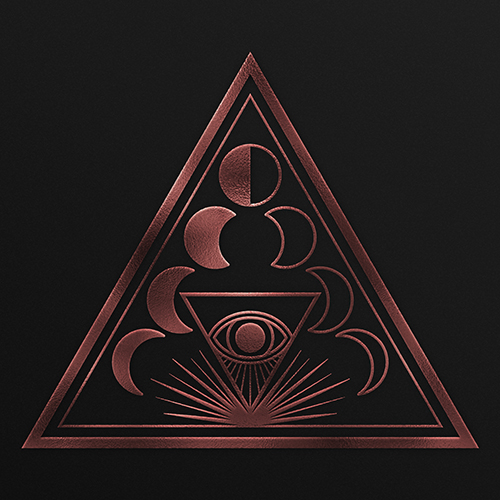 I don’t usually listen to new albums with the band sitting in the room. But my first time through Soen‘s forthcoming album Lotus was just like that. We—most of the band and I—gathered in a Stockholm studio to hear David Castillo’s final master for the first time. I had Martin Lopez, Soen‘s drummer and primary songwriter on a couch behind me and to my right. Next to him on the couch, behind me and to my left, sat the gifted Lars Åhlund—the band’s keyboardist.
I don’t usually listen to new albums with the band sitting in the room. But my first time through Soen‘s forthcoming album Lotus was just like that. We—most of the band and I—gathered in a Stockholm studio to hear David Castillo’s final master for the first time. I had Martin Lopez, Soen‘s drummer and primary songwriter on a couch behind me and to my right. Next to him on the couch, behind me and to my left, sat the gifted Lars Åhlund—the band’s keyboardist.
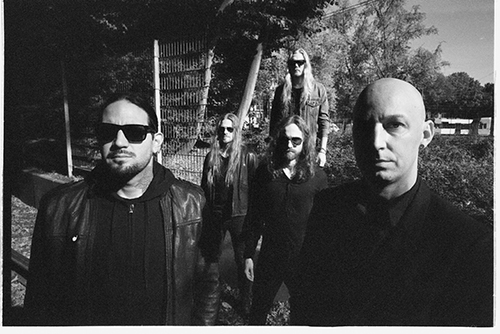
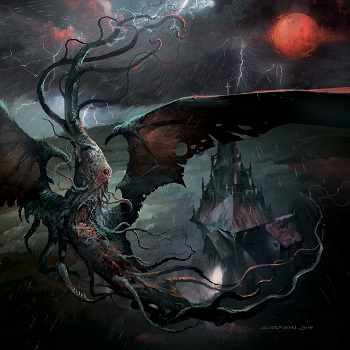 Every reviewer asks the question of why great bands would put out anticipated records right at the end of the year. I’ve done that too, especially because that was my first reaction to the announcement of Sulphur Aeon’s The Scythe of Cosmic Chaos, the follow-up to Gateway to the Antisphere (also known as “the Best Record ov 2015”). The confusion stems from Top Ten lists being ready to go anywhere from October to early December, along with the fact that we tend to think everyone is obsessed with them as we reviewers are. They’re not, and Sulphur Aeon fans will just be stoked that new music from their favorite Cthulhu-themed melodic death metal act is here. Those unaware will be exposed to it through other means: recommendations from friends, trawling the web for new music, reviews written by
Every reviewer asks the question of why great bands would put out anticipated records right at the end of the year. I’ve done that too, especially because that was my first reaction to the announcement of Sulphur Aeon’s The Scythe of Cosmic Chaos, the follow-up to Gateway to the Antisphere (also known as “the Best Record ov 2015”). The confusion stems from Top Ten lists being ready to go anywhere from October to early December, along with the fact that we tend to think everyone is obsessed with them as we reviewers are. They’re not, and Sulphur Aeon fans will just be stoked that new music from their favorite Cthulhu-themed melodic death metal act is here. Those unaware will be exposed to it through other means: recommendations from friends, trawling the web for new music, reviews written by 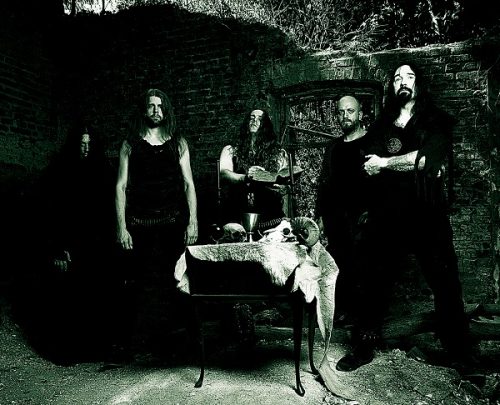
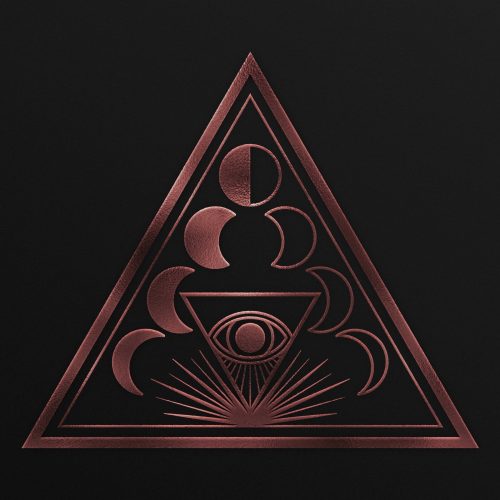 Note:
Note: 